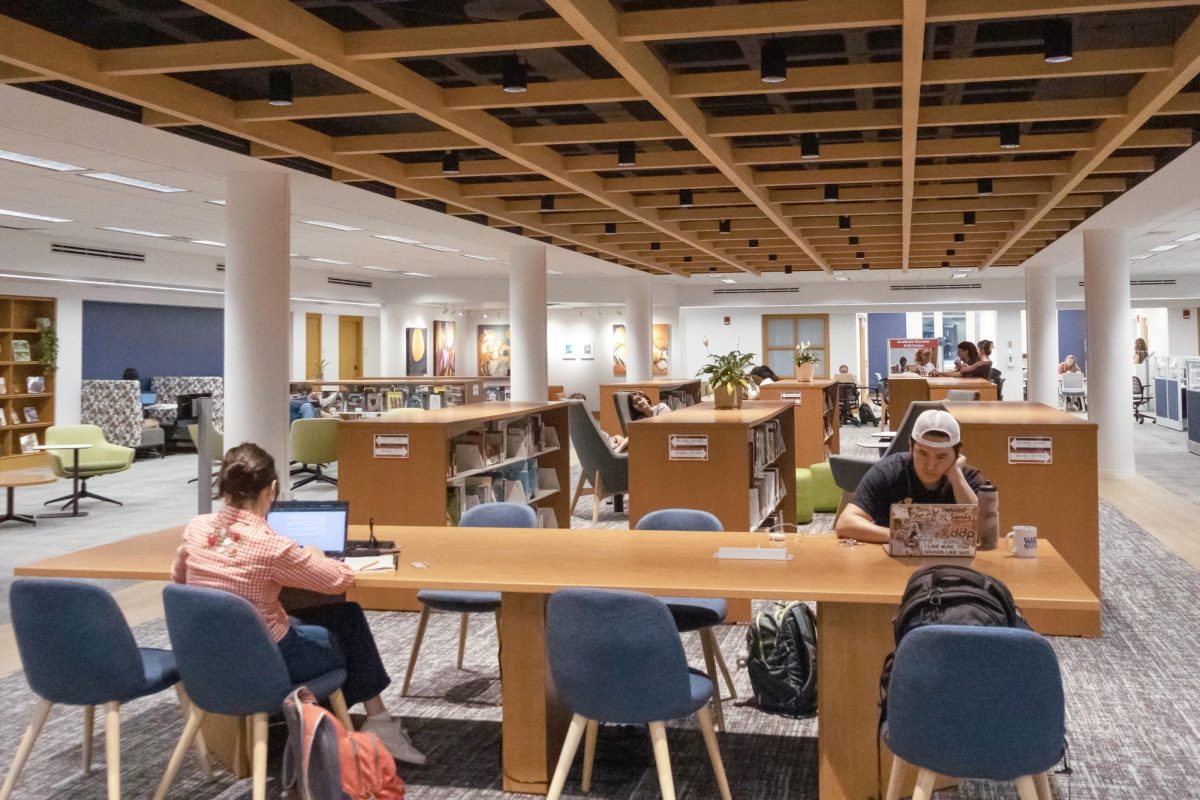Every five minutes, The Mac Weekly’s interview with Bobbie Pennington ’24 was interrupted by a passerby waving and trying to start a conversation with him. If Pennington was too humble to describe his vast impact on the Macalester community, his ubiquity certainly sent the message home.
Recently, his impact on this campus was recognized by the oldest and most prestigious international fellowship award in the world: Pennington was shortlisted as a finalist for the Rhodes Scholarship at Oxford, seeking to pursue a Master of Philosophy in development studies at the university. Although he was not selected for the scholarship, his success placed Macalester on an academic stage that it rarely has access to; it has been almost fifteen years since Macalester has sent a graduate to Oxford under the Rhodes Scholarship, with Michael Waul ’09 being selected in 2008.
Upon returning to the U.S. this July, Pennington originally planned to seek an institutional endorsement from Macalester, a pathway he soon found out did not apply to him as a non-U.S. citizen. Instead, Pennington had to apply through his constituency (a group of five countries: Botswana, Namibia, Malawi, Lesotho and Pennington’s home country of Eswatini) which had an Aug. 1 deadline … four days from then. With the help of his four referees (President Suzanne Rivera, Professor Claude Cassagne, Professor Amy Damon and Professor Mario Solis-Garcia), Pennington made this narrow deadline happen.
“I was delighted to support Bobbie’s candidacy,” Rivera said. “Because we have worked together on matters of shared governance at the college, it was easy to write a letter of support describing his many contributions. The Rhodes is an extremely prestigious and selective program, so we feel honored whenever any Mac student makes it to the interview stage.”
If Pennington’s application was rushed, the most particular selection process in the world did not seem to notice. On Sept. 5, he was notified that he was selected as a finalist within his constituency and was invited to Johannesburg, South Africa, for a two-day socialization and interview stage.
“I went to check my emails, and there was this email [from the Rhodes Trust], and I said ‘huh, they’re emailing me to let me know I didn’t make it,’” Pennington said. “I opened it and it said ‘congratulations’… [and I thought] ‘you’re joking.”
Pennington’s referees were pleased to have a well-respected student represent Macalester in such a prestigious space.
“Bobbie has vision, focus and outstanding leadership abilities, and it makes complete sense that he would be a Rhodes Scholar finalist,” Damon said. “[The Economics Department] could not be any more proud to have Bobbie as a member of our department.”
“This speaks volumes of Bobbie’s intellect, abilities and potential,” Cassagne added.
Being that the Rhodes Scholarship is a rarity at Macalester, Pennington’s support system on campus rallied around him to optimize the rest of his candidacy. Ann Minnick, the director of academic programs and advising, covered Pennington’s travel costs and organized a panel of faculty (Professor Sarah West of economics, Professor Bill Moseley of geography and Professor David Moore of international studies) to conduct a mock interview.
“[Macalester] was absolutely incredible in helping me … [West, Moseley and Moore] are amazing professors,” Pennington said. “They all are very renowned in their fields, but they’re also just great people.”
Pennington’s peers supported him by helping elucidate his worldview and aspirations.
“I had a couple conversations [with friends] about ‘what do I stand for? What do I want my future to be? How will Rhodes and Oxford play into that?’” he said.
In Pennington’s application he demonstrated his ability to effect tangible change, such as providing winter housing and reforming study away funding for international students as MCSG president. Although Macalester students find these changes valuable, this work at Macalester was not the subject of the majority of Pennington’s interview.
Ranging from questions regarding microchipping babies to more practical questions addressing corruption, governance and development in sub-Saharan Africa, Pennington discovered that the interviewing committee was more than willing to throw abstract and peculiar questions at him. Pennington and the seven other candidates had the region’s best scholars picking their brain.
“They try to understand how you think about the world,” he said.
Despite the interview questions being beyond preparation, Pennington was still able to highlight his passion for development in sub-Saharan Africa, the efficacy of aid in these regions and international service.
Pennington anticipates that he will apply again next year, this time with a slightly different lens.
“[Next year] I’ll have a deeper conversation with myself about what values and political issues I stand for,” Pennington said. “A lot of the interview was about very practical, hands-on solutions within Southern Africa, and they weren’t looking so much into these academic concepts. What they were really looking for is ‘how are you going to play into development in Southern Africa.’”
If he applies again, Pennington also states that he will emphasize the Rhodes Scholarship as a learning experience in addition to a career endeavor. Since the success of one’s candidacy might boil down to factors beyond the candidate’s control, the ability to find value in the experience beyond securing the scholarship is important. Situated amongst the most prestigious rising scholars in their region, finalists are encouraged to parlay their Rhodes Scholarship candidacy into a networking opportunity. Traveling for the interview also gave Pennington the chance to be with his community and family in his home region, something he has never been able to do during the semester while at Macalester.
Perhaps the words of Judge President Dunstan Mlambo, chair of the Rhodes interviewing committee and justice on the High Court of South Africa, best illustrate the scholarly and career value of the Rhodes process outside of the scholarship itself.
“[To Bobbie] Whatever happens in the interview, I hope this is not the last time we meet.”











